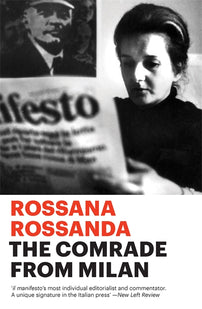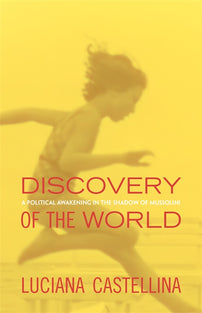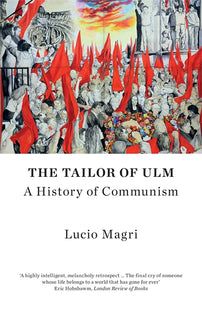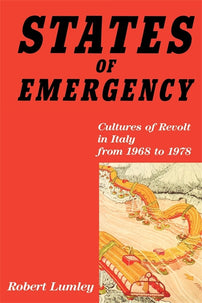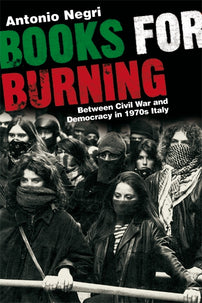Rossana Rossanda: "Since ’68 the Italian Left has lost its bearings"
An interview with Rossana Rossanda on her life in politics and Italy today.
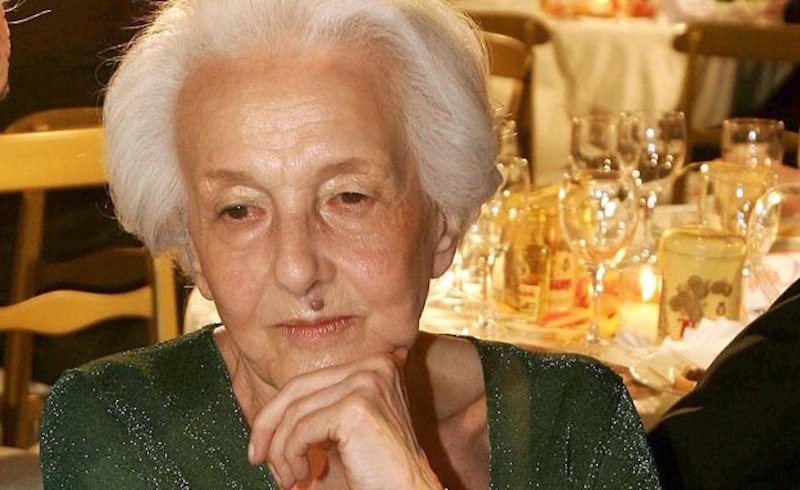
This interview with Rossana Rossanda was first published in the 2 March edition of La Stampa, prior to the Italian general election. Translated by David Broder.
A Pasionaria, no. Once a leader of the Communist Party and then, after being pushed out, a leader of the "heretical" il manifesto, Rossana Rossanda has always expressed a cool passion. She looks something like the century itself: she is the "girl of the last century" [Italian title of Rossanda’s memoir], an aristocratic woman between politics and culture, compared by friends and comrades to the Nike of Samothrace, the masterpiece in the Louvre. Is she like the Nike because she, too, has broken wings? Or because, apart from the metaphorical, This Body That Inhabits Me — title of her new book edited by Lea Melandri, published by Bollati Boringhieri — is on its way out? In fact, the Signora Rossanda makes clear: "it is going away, not me."
Born in 1924, your fight has continued into the new millennium…
In life, and on the page. La ragazza del secolo scorso [The Comrade from Milan], which I published with Einaudi in 2005, is not my own autobiography, but the biography of the Communist Party. I am finishing the sequel. In a month, I’ll have it done.
The political sequel, of course. On Sunday in Italy we go to the polls. What can you make out from your home in Paris?
Great confusion. I will vote. I will exercise my right/duty at the Consulate.
And who will you go for?
Pietro Grasso’s list, Liberi e Uguali.
Valentino Parlato, like you one of the founders of il manifesto, voted for the Five Star Movement in the Rome municipal elections…
He should not have said that he did that. But Valentino always liked doing acrobatics on the border of paradox.
What in Italy most worries you?
Populism, populisms.
You fought your battles. What are your responsibilities?
I am responsible for my side. The Left that has evaporated, dissipated. It did not have the courage to realise itself. From ’68 onward it lost its bearings. For example, it underestimated the young, convinced as it was that they were too absent-minded, too much in a hurry.
The Left has been unable to deal with inequality, don’t you think?
Certainly. To abolish or set up barriers to inequality demands penalising those who have more. And that is no easy decision.
Rossana Rossanda is a communist. What does it mean today, not just rhetorically, to call oneself a communist?
It means being Leninist. Which is to say, to aim at the workers enacting a real distribution of wealth and the establishment of shared rules.
What explains the collapse of the Left and of its party par excellence, the PCI?
We have to look back to the 1920s. Things went from all power to the soviets to no power to the soviets. The apparatus, the bureaucracy, prevailed over the mass of workers, which it suffocated. Things went from Lenin to Stalin.
Thinking of the 1920s, it seems that fascism is re-appearing, or will re-appear. Is it a serious danger?
Without doubt, in Italy there are fascist impulses.
The immigration phenomenon does quite a lot to excite those impulses. Do you fear the Islamicisation of Europe?
Not at all, it is more likely that the Muslims who come to our continent will convert to Europe. Our robust political thinking is able to act as a point of attraction and an antidote.
92 years ago, Piero Gobetti died in Paris. He considered fascism the "autobiography of the nation."
For me, fascism is the unregulated power of the boss class. This is a constant in our history: not recognising workers’ rights. In this sense, the Constitution has not been put into effect.
The Five Star Movement is drawing on the old and new forms of poverty and representing those affected…
The Five Star Movement doesn’t interest me, I don’t understand it. No, it wouldn’t be right to see it following it the footsteps of fascism, but it is a movement that sinks into the indistinct, into chaos.
Rossana Rossanda is an intellectual. Why did you choose the PCI and not the Partito d’Azione, the party of the intellectuals?
It was necessary to confront and defeat Nazism and Fascism. How could we do other than trust in the greatest force on the international plane?
Who was the greatest Italian communist politician?
Palmiro Togliatti. His intuition was to build the PCI organisation more widely, to root it, to make it a structure embracing the people itself. That was not an obvious choice. He was not a Leninist in this regard. Lenin’s party was first of all a cultured, intellectual party.
Did Togliatti not have his faults? Was it not a serious sin of omission not to respond to what was happening in the USSR?
Togliatti made many mistakes, also from a moral point of view. Like backing the repression against the anarchists in Spain.
Togliatti, then. What about Gramsci?
Well, Gramsci. When the Prison Notebooks came out in ’47 it was like our lungs were filled with fresh air, in a sense clearing out the oppressive fog of Zhdanovism. Gramsci’s modernity lay in the fact that he did not simplify matters, in his knowledge that reality is complex and complicated.
Beyond the Communists, who did you respect? Perhaps [the Red Brigades’ captive, former Christian-Democratic premier] Aldo Moro, who died forty years ago this May?
No, not Moro. I have the feeling that he was very attentive to his party and the Church. But he was not interested in engaging in a constructive discussion with the Left.
Moro and [1970-84 PCI leader Enrico] Berlinguer put together the historic compromise.
That was a mistake of Berlinguer’s. And I do not believe that the compromise really convinced Moro either.
You mention the Church. For some, the authentic left-wing point of reference today is Bergoglio [Pope Francis].
This Pope represents the original Christianity. He takes the path of equality and solidarity.
Rossana Rossanda was also a politician.
I was in Parliament. But the productive, capital P Politics I did was in Milan, as a municipal councillor. There I had the feeling that I was operating in a society that could be transformed, precisely because it was knowable. Experimenting in a laboratory with the Catholic Left, from Marcora to Bassetti.
You are in Paris. Don’t you think of coming back to Rome?
I come back from time to time. I shall return.
Perhaps as a Senator for Life?
I’d be honoured. And I’ll admit, it would be helpful for my finances, too.
[book-strip index="1" style="display"]
